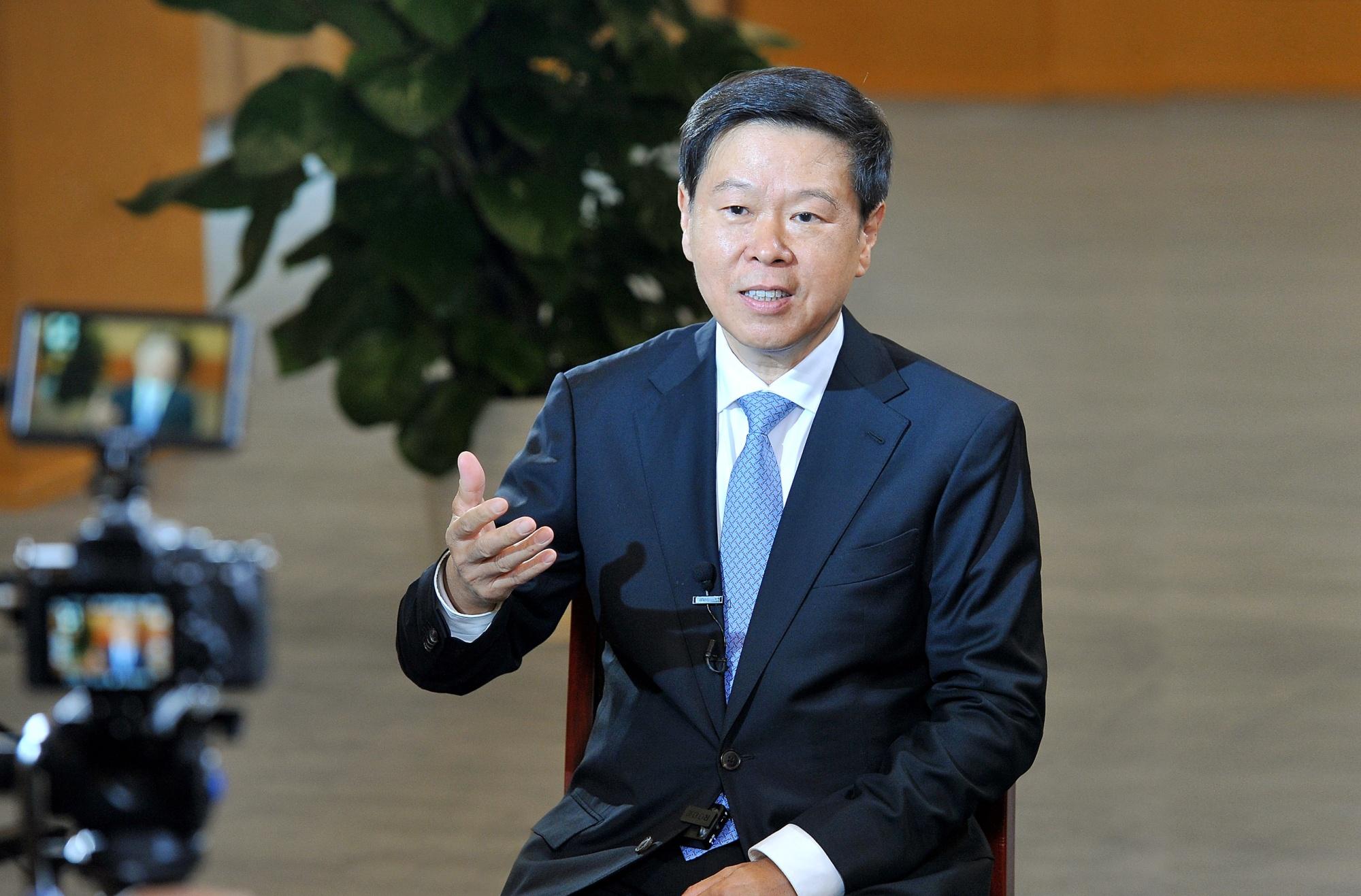Beijing, October 20 (Reporter Liu Baixuan) According to the Central Radio and Television Corporation's economic voice "Tianxia Finance", for market players, a good tax environment is like sunshine, water and air. How to further create a level playing field in taxation? Wang Jun, director of the State Administration of Taxation, was interviewed by a reporter from the General Station a few days ago and talked about four "ways to find ways" -- trying to lower the nominal tax rate, trying to raise the actual collection rate, finding ways to crack down on tax evasion, and finding ways to optimize tax and fee services.

Wang Jun, director of the State Administration of Taxation, was interviewed (Photo by Su Yu, issued by the Central Broadcasting Network)
Tens of millions of enterprise taxpayers and more than one billion natural persons paying taxes and payments across the country must "deal" with the tax department. As the government "window" with the largest number of service targets, how can the tax department further create a fair and competitive tax environment and create greater development space for all kinds of market entities?
Wang Jun gave the answer, focusing on four "ways to find ways". "Find ways to lower the nominal tax rate, find ways to raise the actual collection rate, find ways to crack down on tax evasion, and find ways to optimize tax services to promote the development, benign interaction, and standardization of enterprises of all kinds of ownership, large, medium, and small enterprises of all sizes." He said.
The "answer sheet" handed over by "nominal tax rate reduction" can be described as eye-catching. Wang Jun told reporters that during the "Thirteenth Five-Year Plan" period, the total number of new tax cuts and fee reductions nationwide exceeded 7.6 trillion yuan, of which 4.6 trillion yuan was reduced, accounting for more than 60%. "The macro tax burden fell from 18.13% in 2015 to 15.2% in 2020, almost reducing by 3 percentage points, which is a terrible thing." Tax reduction and fee reduction not only focus on inclusiveness, but also focus on pertinence. Among them, science and technology innovation enterprises, private enterprises, small and micro enterprises, and low- and middle-income groups should be said to have benefited the most. ”
In terms of cracking down on tax evasion, Wang Jun said that it is not soft at all to resolutely crack down on malicious tax evasion by lawbreakers; for general tax-related violations, the use of tax big data to continue to improve the dynamic "credit + risk" supervision system, and strictly manage and strictly supervise taxpayers with low credit and high risk.
Two sets of key data "one rise and one fall" reflect the effectiveness of precision supervision. Wang Jun said: "During the '13th Five-Year Plan' period, the number of risk taxpayers analyzed and responded by the tax department fell by an average of 22.1% per year, while the average household supplementary tax increased by 29.7% per year. On the one hand, this reflects the effectiveness of accurate supervision, on the other hand, it also shows that taxpayers' awareness of risk and rule of law is constantly improving, and the compliance and compliance of tax laws are constantly improving. ”
"Let law enforcement have both strength and temperature" is an important trend for future tax law enforcement. Wang Jun revealed that the second batch of "first violations without punishment" list will be released. "For minor violations without subjective intent, we promote soft and temperate law enforcement. For example, in April this year, the first batch of 10 tax administrative penalties including the list of "first violations and no penalties" was launched, and more than 60,000 taxpayers have benefited in the past six months. In the first quarter of next year, we will launch the second batch of 'first violation without penalty' list. ”
There is also a temperature and tax service. Wang Jun said that the focus of optimizing tax and fee services is mainly reflected in the "three changes", including: from offline services to online and offline services; from common services to personalized services; from procedural services to more equity services. "My attitude is: if you know it, you will change it, if you violate the law, you will correct it, and if you fail to do it, you will investigate it, and strive to make the tax service better and better." Wang Jun said.